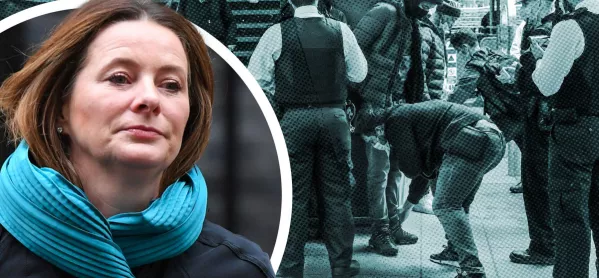The education secretary has been asked to set out how teachers and school staff are trained to spot exploitation by county lines gangs.
Robin Walker, chair of the Commons Education Select Committee, has today written to Gillian Keegan after the committee questioned witnesses about child exploitation earlier this year to ask how teachers are trained to spot and prevent gang exploitation.
In those sessions, MPs were told by Bali Rodgers of the Safer Communities Alliance and Refocus Project: “Schools need a lot more education about what younger grooming and exploitation is because they cannot see the signs.”
In his letter to the education secretary, Mr Walker said the committee were told that people with lived experience should be going into schools to help teachers understand child exploitation signs.
Witnesses also said a main indicator of exploitation is a child being missing from education or home for extended periods.
MPs have now asked Ms Keegan to “provide us with an overview of what training and education school staff currently receive about county lines exploitation, including how to identify and prevent it”.
They have also asked for details on what education children currently receive on the issue and details of “any efforts being made to revise and improve this”.
Call for update on modern slavery guidance
Ms Keegan is also asked to provide details of how the national referral mechanism (NRM), which identifies potential victims of modern slavery, is currently working and how the Department for Education is improving awareness of it.
MPs asked for the NRM update after hearing in evidence sessions that there are limitations in the coordination between schools, authorities and local services, the letter explains.
The letter asks the education secretary if the government will introduce a statutory definition of criminal child exploitation, issue guidance for interpreting the Modern Slavery Act, and what steps it is taking to protect pupils from online grooming.
The education committee heard evidence from witnesses at the Child Safeguarding Practice Review Panel, the National Policy Chiefs’ Council and experts from charities supporting vulnerable children across 28 February and 4 July this year.
A government spokesperson said that schools play a crucial role in safeguarding pupils and their duties alongside other partners are clearly set out in guidance. They added that Violence Reduction Units have reached over 215,000 vulnerable young people in targeted areas in their third year of funding, and highlighted that the government had put £50 million of funding into specialist support in mainstream schools and alternative provision in “areas where serious violence most impacts children”.




